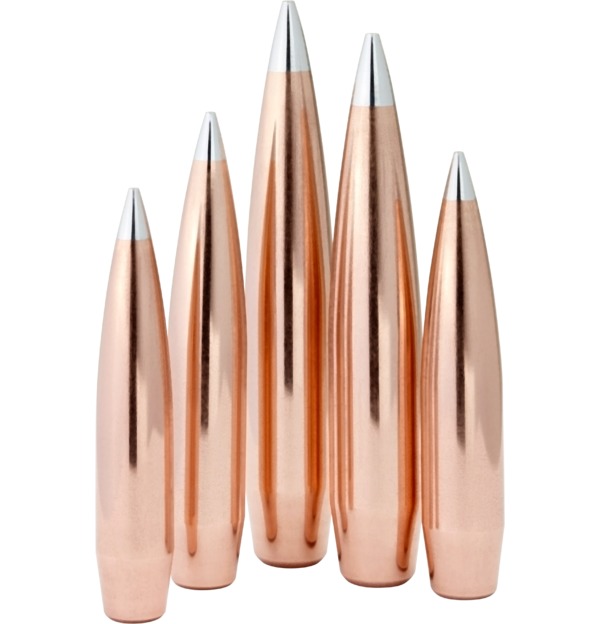Bullets
Why Conventional Lead-Core Bullets
Why Conventional Lead-Core Bullets are Better than Monolithic Bullets: A Comprehensive Perspective
The ongoing debate between monolithic bullets (typically made of solid copper or brass) and conventional lead-core bullets continues to divide the hunting and shooting community. While monolithic bullets have garnered attention for their environmental benefits and deep-penetration capabilities, many hunters and target shooters still prefer conventional lead-core bullets for their cost-effectiveness, versatility, and time-tested performance. In this article, we explore the reasons why conventional bullets can often be the better choice.
1. Affordability and Cost-Effectiveness
One of the clearest advantages of conventional lead-core bullets is their cost. Lead is an inexpensive, abundant material, and the manufacturing process for these bullets is more cost-efficient compared to the high-grade copper or brass used in monolithic bullets. This makes conventional bullets significantly more affordable, particularly when buying in bulk.
For target shooters, who may fire hundreds or even thousands of rounds in practice sessions, the cost of ammunition is a significant factor. Saving money on each round means more practice time at the range without breaking the bank. The same applies to hunters, especially those who frequently practice shooting or hunt in areas where they may fire multiple rounds during a hunt. The lower cost of lead-core bullets allows hunters to train more effectively, preparing them for critical shots in the field.
While monolithic bullets are generally more expensive due to the materials and manufacturing involved, lead-core bullets provide exceptional value for money, making them the preferred choice for budget-conscious shooters.
2. Widespread Availability and Options
The versatility of conventional bullets extends beyond cost. Most retailers carry a broader selection of lead-core bullets across different calibers and bullet designs. Whether you’re shooting a classic .30-06 Springfield or a modern .223 Remington, lead-core ammunition options are plentiful and easy to find.
This widespread availability benefits hunters and shooters who may need ammunition quickly, particularly those in remote areas where specialty ammunition, like monolithic bullets, can be harder to come by. Whether it’s target shooting or hunting, lead-core bullets offer reliable access to the most commonly used calibers and weights, ensuring shooters can always find the right ammunition for their needs.
In contrast, monolithic bullets, while increasingly available, often don’t match the variety and availability of lead-core bullets. Specialty loads, such as varmint-specific rounds or big-game-specific bullets, are more prevalent in conventional designs, giving shooters more options tailored to specific scenarios.
3. Proven Performance and History
Lead-core bullets have been the standard in hunting and target shooting for well over a century. Their effectiveness has been proven across countless environments, from dense woods to open plains. Generations of hunters have relied on these bullets for everything from small game to large, dangerous animals.
This established track record means that hunters and shooters can trust the performance of lead-core bullets in virtually any situation. Whether you’re using soft-point, hollow-point, or ballistic-tipped designs, the predictability and performance of these bullets are well-known. This long-standing reliability gives shooters confidence in their gear, knowing that lead-core bullets will perform as expected when it counts.
Monolithic bullets, while increasingly popular, are relatively newer to the market, and while they offer specific advantages in terms of penetration and weight retention, their history doesn’t match the century-long record of conventional lead-core designs.
4. Superior Expansion for Faster, More Humane Kills
One of the key features of conventional lead-core bullets is their ability to expand quickly upon impact. Expansion is critical for hunters targeting medium- to large-sized game like deer, where creating a wide wound channel is essential for a humane, effective kill.
Soft-point and hollow-point bullets are specifically designed to expand upon impact, causing a larger wound cavity and transferring energy efficiently into the target. This rapid expansion results in more significant tissue damage and maximizes the energy transfer, which often results in the animal dropping quickly. For hunters, this means less tracking and a higher chance of retrieving game immediately.
Monolithic bullets, on the other hand, are designed for controlled, slower expansion. While this results in deep penetration, it can sometimes mean the bullet passes through the animal without transferring enough energy to ensure a quick kill. For shorter-range shots or medium-sized game, where energy transfer and rapid expansion are more critical than deep penetration, lead-core bullets often outperform monolithic options.
5. Variety of Bullet Designs Tailored to Specific Needs
Conventional lead-core bullets come in a wide array of designs to suit different hunting and shooting situations. Whether you’re targeting small, fast-moving varmints or large, tough game, there’s a bullet design available to meet your needs.
- Hollow-Point Bullets: Excellent for small game and varmint hunting, hollow-point bullets expand upon impact, creating a large wound channel. These bullets are ideal for quick, humane kills in scenarios where penetration isn’t as critical.
- Soft-Point Bullets: Favored for larger game, soft-point bullets offer controlled expansion while still penetrating deeply enough to hit vital organs. They are especially effective at medium ranges for animals like deer and elk.
- Ballistic-Tip Bullets: These offer a combination of expansion and accuracy, making them suitable for long-range shooting and hunting. The polymer tip improves the bullet’s aerodynamics, ensuring better accuracy, while still allowing the bullet to expand upon impact.
Monolithic bullets generally offer fewer design options. They are built for deep penetration and weight retention, which can limit their versatility. In contrast, conventional bullets are available in designs optimized for everything from close-range, high-energy shots to long-range precision shooting.
6. Greater Energy Transfer for Immediate Stopping Power
When hunting, immediate stopping power is crucial for ensuring the animal is humanely taken down with minimal suffering. Conventional lead-core bullets are known for their ability to transfer energy rapidly upon impact. As the bullet expands, it releases its kinetic energy into the animal, causing more tissue damage and shock, leading to quicker kills.
This rapid energy transfer is particularly advantageous for hunters who prefer to drop their prey quickly without a lengthy chase. Monolithic bullets, while known for their deep penetration, don’t always deliver the same amount of energy transfer immediately, as they tend to expand more slowly and retain their weight. This can lead to over-penetration and less immediate shock in certain hunting situations.
7. Less Sensitivity to Barrel Twist Rates
Conventional lead-core bullets are typically shorter than their monolithic counterparts of the same weight due to the higher density of lead. This means they are easier to stabilize in a wider variety of rifles, even those with slower twist rates. For hunters using older rifles or those with standard twist rates, lead-core bullets are more likely to perform consistently without requiring specialized barrel configurations.
Monolithic bullets, on the other hand, are longer for the same weight, which means they require faster twist rates to stabilize properly. This can limit their use in certain firearms, making lead-core bullets the better option for many shooters who don’t want to modify their rifles or worry about twist rate compatibility.
8. Availability of Premium Hunting Loads
While monolithic bullets are becoming more popular, premium lead-core bullets are widely available and trusted by hunters for their consistent performance. Brands such as Nosler, Federal, and Hornady offer a range of high-quality, lead-core hunting bullets designed for different game types and hunting conditions.
For example, the Nosler Partition, known for its controlled expansion and deep penetration, has been a go-to choice for hunters for decades. Similarly, the Hornady InterLock and Federal Trophy Bonded bullets offer excellent performance for a variety of game. These premium bullets are optimized for hunters looking for superior terminal performance, giving them confidence in the field.
Conclusion: Reliable, Affordable, and Effective
Conventional lead-core bullets continue to be the preferred choice for many hunters and target shooters due to their affordability, versatility, and proven performance. They offer faster expansion, better energy transfer, and a broader range of design options tailored to specific hunting and shooting scenarios. For those seeking reliable, cost-effective ammunition with a long track record of success, conventional lead-core bullets remain a smart and practical choice. Whether you’re hunting big game or practicing at the range, conventional bullets provide the performance and flexibility needed for success across a variety of environments and conditions.



